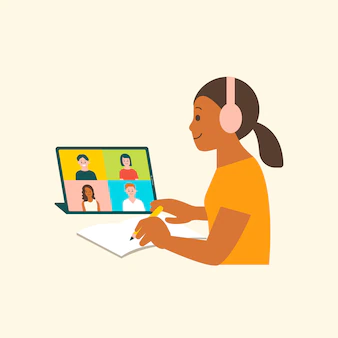Nail Your Interviews: The Comprehensive Success Guide
Interviewing for a job may be an exhilarating and anxious process. They are the crucial gateways to landing the job of your dreams and mastering the art of interview success is essential to ensure that you stand out and make a lasting impression. Whether you are a seasoned professional or a recent graduate, this comprehensive guide will provide you with the strategies and tips you need to succeed in interviews.
Research the Company:
Do extensive study on the business and the position you are seeking before your interview. Recognise the mission, values, culture, and any new or emerging advancements of the firm. Learn about the employment requirements and the particular credentials they are looking for. This information will not only help you respond to inquiries more intelligently, but it will also show that you genuinely care about the company.
Prepare Your Responses:
One of the most common interview questions is "Tell me about yourself." Prepare a concise, engaging response that highlights your relevant skills, experiences, and achievements. Additionally, anticipate and rehearse answers to common behavioural questions using the STAR method (Situation, Task, Action, Result). This approach helps you provide concrete examples of your skills and accomplishments.
Dress Appropriately:
Pick your interview clothes carefully. The industry and corporate culture might have an impact on the proper dress code. When in doubt, it's better to err on the side of excess than underdressing. Wearing business attire boosts confidence and makes a good impression.
Be Punctual:
Arriving on time is crucial. Plan to arrive at the interview location 10-15 minutes early. It not only demonstrates punctuality but also gives you some extra time to relax and gather your thoughts before the interview.
Practise Good Body Language:
Nonverbal cues hold equal significance as spoken words. Keep your back to the chair, make eye contact, and give a firm handshake to convey professionalism and confidence. Refrain from slouching or fidgeting as these actions can convey anxiety.
Listen Actively:
During the interview, listen carefully to the questions and respond directly. Avoid interrupting the interviewer and practise active listening to ensure you understand the question fully before answering.
Showcase Your Skills and Achievements:
To illustrate how your qualifications and experiences meet the job requirements, provide concrete examples. Be succinct and clear, highlighting how your activities have affected past jobs or initiatives.
Ask Thoughtful Questions:
You should have the chance to ask questions at the conclusion of the interview. Make thoughtful inquiries regarding the position, the business, the dynamics of the team, and the future objectives. Do not inquire. You should have the chance to ask questions at the conclusion of the interview. Make thoughtful inquiries regarding the position, the business, the dynamics of the team, and the future objectives. Do not inquire.
Follow Up:
Email the interviewer a thank-you note following the interview. This small gesture can help you stand out from the competition and make a good first impression.
Learn and Improve:
Consider every interview as a teaching opportunity, even in the event that you are not hired. If at all possible, ask the interviewer for feedback so you can use it to enhance your performance in subsequent interviews.
It is possible to improve interviewing skills with preparation and practise. You can become more confident, make an impression on interviewers, and raise your chances of landing the job you want by using these strategies.




Comments
Post a Comment